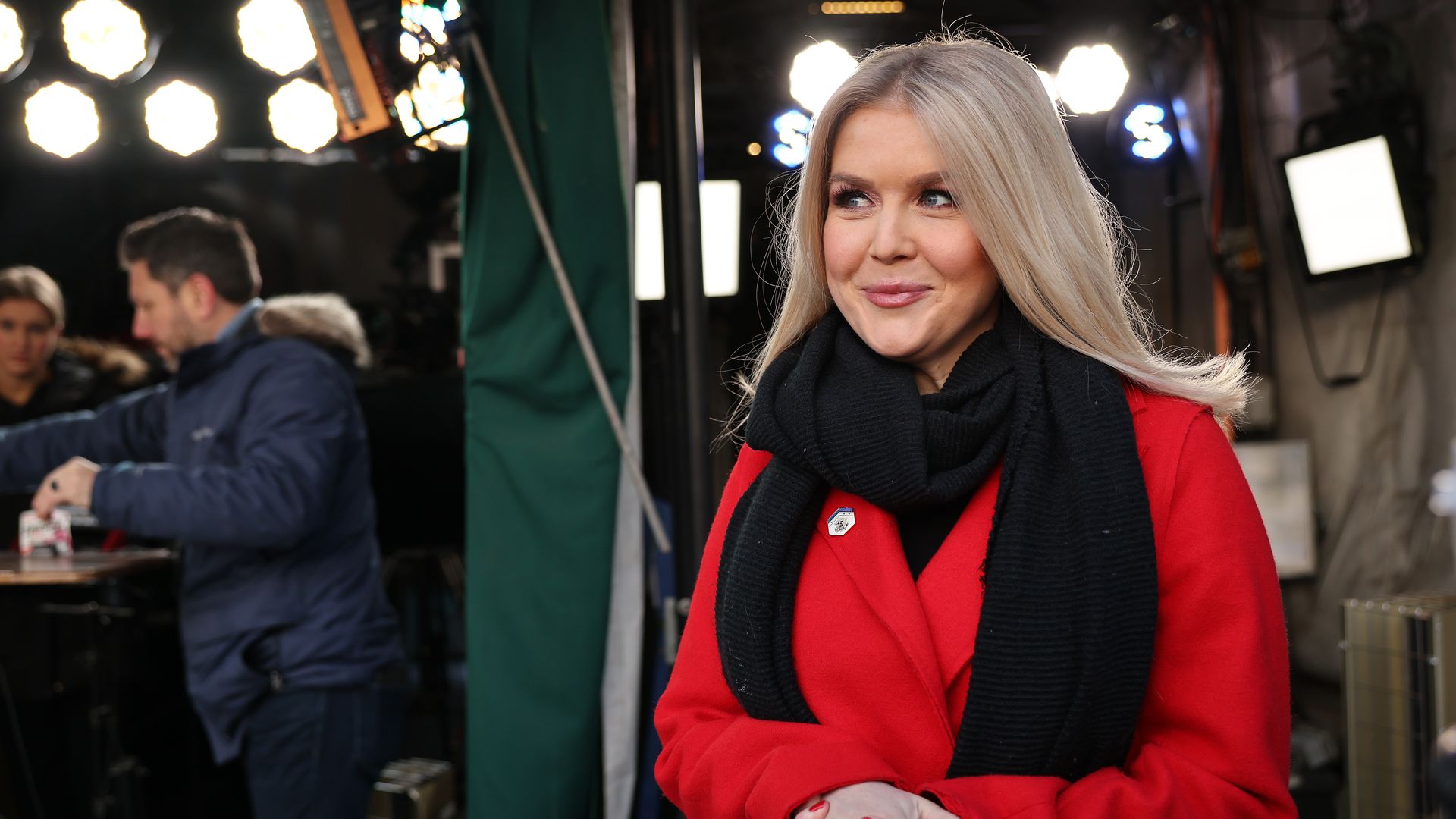In a political landscape increasingly defined by sharp rhetoric and social media soundbites, a single exchange can ignite fierce debate and reveal deeper societal fractures. Such was the case when Karoline Leavitt responded to Jasmine Crockett’s incendiary insult calling her “KKK Barbie.” Leavitt’s eight-word reply, delivered calmly and politely in that frozen moment, not only stunned Crockett but forced her to confront consequences far beyond the immediate verbal clash. This incident is more than a personal spat; it is a microcosm of the dangerous polarization, racial tensions, and accountability issues that plague contemporary politics.
The Incident: More Than Just an Insult
When Crockett labeled Leavitt “KKK Barbie,” she weaponized a historically charged symbol—the Ku Klux Klan—against her political opponent. This was not a casual insult but a deliberate attempt to evoke racial hatred and associate Leavitt with white supremacy, a charge that carries immense weight and stigma in American society. Such language is provocative and designed to inflame passions, rally supporters, and discredit opponents through moral condemnation.
Leavitt’s response, however, was strikingly different from what many expected. Instead of retaliating with equal vitriol or dismissing the comment with anger, she chose a calm, polite eight-word reply that cut through the noise. This moment of composure highlighted a strategic and emotional intelligence that contrasted sharply with Crockett’s aggressive approach. It was a reminder that sometimes, silence or measured words can be more powerful than shouting louder.
The Broader Implications: Accountability and Political Discourse
Leavitt’s poised reply forced Crockett to face “much bigger consequences she’d been trying to avoid for years.” What does this mean? In an era where political figures often evade responsibility for their words, this exchange exposed the dangers of reckless rhetoric. Crockett’s accusation was not only inflammatory but also potentially defamatory, risking the erosion of trust and civility in public discourse.

Moreover, the incident raises questions about the use of racialized language in politics. While calling out racism is essential, weaponizing racial slurs or symbols without evidence can backfire, undermining legitimate grievances and deepening divisions. Crockett’s choice to brand Leavitt as “KKK Barbie” without substantiation risks trivializing the real and ongoing struggles against white supremacy, turning serious issues into political weapons.
The Controversy: Free Speech vs. Responsible Speech
This event also ignites a broader debate about free speech and responsible speech in politics. On one hand, politicians must be free to critique and challenge each other robustly. On the other hand, there is a moral imperative to avoid language that incites hatred or falsely maligns others. Crockett’s insult straddles this line dangerously, raising the question: Should there be limits to political speech, especially when it involves racially charged accusations?

Leavitt’s calm reply can be seen as a call for higher standards—a reminder that political discourse should elevate rather than degrade. Yet, critics might argue that her measured response allowed the insult to stand unchallenged in the public eye, potentially emboldening similar attacks in the future. This tension between confrontation and composure lies at the heart of modern political communication.
The Social Media Effect: Amplifying Conflict
In today’s digital age, moments like this are instantly amplified across social media platforms, where nuance is often lost, and outrage spreads rapidly. Crockett’s insult and Leavitt’s reply became viral, sparking heated debates among supporters and detractors alike. This amplification can deepen societal divides, turning political disagreements into cultural wars.
However, it also offers an opportunity. Leavitt’s example shows that even in a toxic environment, individuals can choose dignity and restraint. It challenges others to reconsider how they engage in political battles and whether escalating conflict truly serves democracy or merely fuels polarization.

Conclusion: A Moment That Reflects a Larger Struggle
Karoline Leavitt’s eight-word reply to Jasmine Crockett’s “KKK Barbie” insult was more than a simple comeback. It was a moment that crystallized the complexities of race, rhetoric, and responsibility in American politics. Crockett’s attempt to use a powerful racial symbol as a weapon backfired, forcing her to confront consequences she had long avoided. Meanwhile, Leavitt’s calm response serves as a provocative example of how words can either inflame or defuse tensions.
This incident invites us all to reflect on the power of language in shaping political realities. It challenges politicians and citizens alike to strive for discourse that is honest yet respectful, passionate yet measured. Only then can we hope to move beyond the divisive soundbites and toward a more constructive and inclusive political future.






